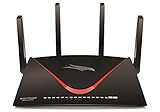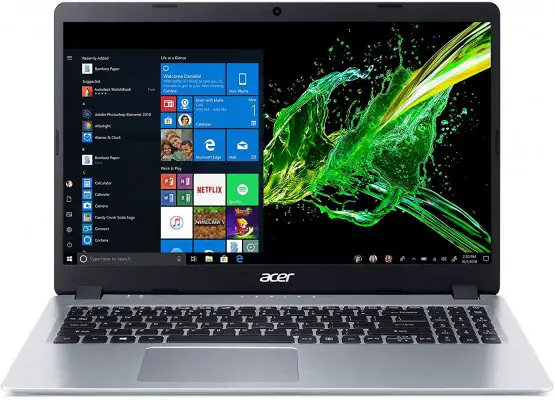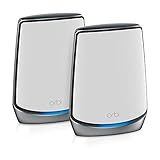How much does it cost to run a blog?
If you're considering running your own blog, it's a good idea to consider how much does it actually cost to run a blog? What are the benefits of free versus paid? And can you save money by finding deals online? After blogging for over 6 years, this guide will take a look at all the associated costs with running your own blog.

There are two ways of running a blog. There is the free way, and the paid way. Free blogs are limited in various ways compared to running a paid blog, including but not limited to:
- How much you can customise your blog
- The amount of traffic you can receive
- SEO benefits
- Various tools to improve your blog's performance
- Being able to expand.
If it's your first time running your own blog, a free blog is perfect for getting your hands wet. You get a great insight into how it feels to write (daily or weekly depending on your motivation), how certain tools work and learning more about how you get people to read your blog.
A paid for blog though will open up every possible avenue when it comes to blogging.
Today we'll look at all the associated costs that come with paying for your own blog. Anyone who is serious about making their blog successful, should definitely consider moving to having a paid-for blog.
Hosting A Blog
Hosting a blog is your first cost. A webhost gives you your own space on a server to create a website. You can install a blogging platform like WordPress, or create your own if you have the programming knowledge to do so. Installing WordPress is many people's prefered option as there are so many tools, addons and themes available that make getting started a lot easier.
Why reinvent the wheel? That's for another time, but programming your own blog does have some advantages too.
Hosting your own blog requires you to pay a monthly or annual fee. Usually you get your own Domain Name (more on that later) with your hosting, so that your blog can start to look professional. There's nothing like visiting a free blog without it's own domain name that will put off visitors and click-through-rate. Usually a free blog on a subdomain is a big giveaway to the type of content you're going to view, and that will make people hesitant to visit your blog.
Hosting your own blog comes with it's own benefits too. You're in control. You can decide what goes on your blog, what updates to add and how to customise something. You can hire a freelance programmer to add a new feature, or change a line of code to improve your blog's performance.
Hosting prices are quite cheap. On Bluehost, one of the leading shared-hosting sites available, you can expect to pay less than $5/month, get access to cPanel, instant WordPress setup and great support right out of the date. You can also go the other route of setting up your own server at DigitalOcean, where you can pay $5/month for a bare-bones setup.
If you're new to hosting your own blog, I definitely recommend going with a shared-hosting site like Bluehost. Their clients tend to be new users to setting up websites and are used to dealing with people who have a lot of basic questions. They do offer more advanced options too, including Virtual Private Servers and Dedicated Servers.
Domain Names For Blogs
A domain name will set you back around $10 a year if you plan on getting one of the original TLDs (top level domains). Domains with .com, .net, .org and variations on .co.uk are the most common and help you look like an established blog, but there are others that have become available in recent years.
In 2014, ICANN introduced new domain extensions for people to use, including ones like .io, .online and even a .blog. The popularity of these domain extensions isn't as wide as the original .com ones, but they are slowly gaining more traction. One of the issues with .com domains is that a lot of good names have been taken, so people are slowly looking at getting other extensions. Some of these new extensions cost a lot more than $10/year, so make sure you take a look at the pricing of domains if you plan on not getting a traditional domain name. (A .blog one costs $20/year).

Personally, I still prefer a good old .com domain name. But that's just me.
Getting a domain name is easy, and I recommend getting your domain from the same place you get your webhost. This allows you to keep all these pieces in the same place. A domain needs its DNS updated to point at your webhost, which can be a bit confusing for new webmasters. When you buy a domain at the same place you buy your webhosting at, they automatically setup the domain for you. Also, Bluehost give a free domain with a years worth of hosting. Nice!
If you're comfortable with setting up your own domains, some of the other good places to register a domain is:
WordPress Themes / Plugins
Possibly the most popular blogging platform has to be WordPress. It has competition from sites like Wix, but WordPress still has many more themes, options, plugins and addons that make it the superior platform. WordPress is free to use, and anyone can install it on their site, even if you intend to make a profit on your blog.
The cost of using WordPress comes in when you consider themes. Themes are specially crafted designs for blogs that you can purchase to make your blog look better. Instead of hiring a custom developer to make you a special design that can cost hundreds of dollars, you instead can purchase a theme that is ready-made for a low price.
Themes can also be customised, so if you're worried about your blog looking the same as everyone elses, you shouldn't. Most themes come with option boards, allowing you to change colors, images, links and other settings to make your blog unique.
You obviouly get more control if you hire your own designer to make you a site, but usually they aren't as customisable as a WordPress theme. You can change your theme options as often as you like.
WordPress Plugins are another way to boost your blog. Plugins are special pieces of code that enhance your blog and provide extra features in managing, displaying content and boosting your blog's performance. Like themes, Plugins can be purchased and installed into WordPress with a few clicks. It's what makes WordPress so appealing and easy to use for bloggers.
The cost of a theme will usually be around $40-$70. It's usually a one-off payment and sites like ThemeForest offer plenty for you to choose from.
Plugin prices are very individual because they all do different things. Some plugins charge a monthly fee, and some require a one-off fee. You can check out CodeCanyon for a list of Plugins available.
There are of course free themes and plugins available on WordPress too. These themes can sometimes be just as good as paid for ones, so make sure you check them out in WordPress's Theme area.
Other Costs For Blogging
These are some other costs you should consider when starting a blog. These ones aren't really nessicary or required for starting your own blog, but when you become a bit more established, it might be something to invest in.
- Hiring Writers for content - If you want to increase your content output, hiring writers is one way to do it.
- Advertising Costs - One way to get traffic is to pay for it. Advertising costs can balloon to extraordinary heights.
- Programmer Costs for custom features - If you want your blog to have fancy features, these also cost a lot.
- Stockphotos - Want to have nice, professional images for your blog? These can cost a pretty penny.
- Social Media Management - If you want someone to make sure your blog is being posted on Twitter, Facebook, Reddit, Google and all the other social medias, hiring someone to do it for you can take a lot of the pain away.
If you can think of any other costs to add to this list, let me know in the comments!

















Leave A Comment